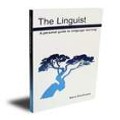English is well established as the most useful world language. The largest demand for second language instruction in the world is for English. Whether we like it or not, English dominates in business, science, travel and popular culture, not to mention the Internet. English is a rather clumsy language, combining the influences of Old English, Latin, Norman French and natural evolution. As a result, English has all kinds of inconsistencies of grammar and spelling to frustrate the learner. Yet English dominates, whereas artificial international languages like Esperanto have never had any following.
Two thousand years ago, or even five hundred years ago, it would have seemed ridiculous to suppose that the language spoken on a small damp North Atlantic island would one day be the world's most widely used language. Certainly Chinese, Latin, Greek, Arabic, or even Mongolian would, at various times in history, have seemed more likely candidates. Who knows what languages will be spoken in another five hundred years? As Spencer Wells explains in The Journey of Man, A Genetic Odyssey (Princeton University Press) "[Although] Sogdian was once the lingua franca of the Silk Road - in much the same way that English is the language of commerce today, by the twentieth century all dialects were extinct but one." If you are not a native speaker of English, then I encourage you to read this book in English. This may be the first book that you read in English, but you can do it. Perhaps most of the English content you have read up until now has consisted of short texts or articles. Perhaps the thought of reading a whole book in English is intimidating to you. It should not be.
This book, which contains over 4,000 of the most common English words, is presented in a mixed media format that is at the core of a language learning system we call The Linguist. By reading this book in conjunction with our system, you can be sure that these 4,000 words will become part of your active vocabulary.
This book is printed on paper, the most comfortable and intimate format. Books are portable and convenient. But I have also recorded the contents on a CD so that you can hear the language and allow it to stimulate those neural networks in your brain which respond to the spoken language. Finally, the book is available in electronic format so you can look up words using dictionary software and take advantage of the many functions you will find at our web site, www.thelinguist.com.

